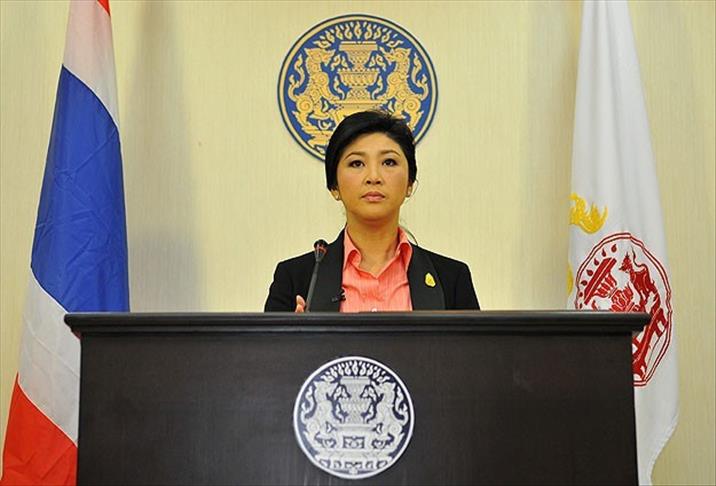
The day after being dismissed from her post as prime minister, Yingluck Shinawatra was indicted Thursday for dereliction of duty, in what some analysts consider an onslaught by anti-government leaning courts and agencies against the Shinawatra political clan.
The indictment is the last of a series of initiatives by organizations directly or indirectly linked to the judiciary against Yingluck’s government. On Wednesday, the Constitutional Court dismissed her for abuse of power -- along with nine of her ministers -- in relation to the transfer of a high-ranking civil servant in 2011.
Anti-Corruption Commission spokesman Vicha Mahakhun said Thursday that the latest decision had been unanimous and the case would be forwarded next week to the Thai Senate for an impeachment process.
"There is clearly a campaign against the Shinawatras," Eugenie Merieau, a Bangkok-based academic and expert on the Thai judiciary told the Anadolu Agency. "It is consistent with the 2007 constitution which has put into place mechanisms, like the independent agencies, to get rid of the Shinawatra problem."
It is not clear how an impeachment could proceed against Yingluck as she has already been removed from her prime minister position. But other consequences of the indictment could be the filing of criminal charges against her and some of her ministers by the Anti-Corruption Commission.
Commissioner Preecha Lertkamolmas said Thursday that the decision on criminal charges will be taken later.
Thursday's case relates to the government’s rice-subsidies scheme, which caused massive financial losses to Thailand and has been criticized for opening the door to corruption. Yingluck is accused of having done nothing to stop the problem, despite being aware of the troubles it was causing.
The scheme was initiated soon after Yingluck's Puea Thai (For the Thais) party won the 2011 elections. Under the scheme, the government bought rice directly from farmers at a price 50 percent higher than market value. At first, the program proved popular, but quickly ran into hundreds of billions of baht (billions of euros) in financial losses.
Commerce Minister Niwatthamrong Boonsongpaisan was appointed Wednesday to replace Yingluck as prime minister. Although removed from her post, Yingluck has not been banned from political activities by the Constitutional Court and could in theory be a candidate for the next legislative elections, which are planned for July 20.
Talking to the media Wednesday evening, she was non-committal about her future political activities.
"Things are happening very fast. It is too early to answer this question," she said.
Yingluck’s government has faced a wave of opposition protests since it pushed through an amnesty in 2013 that would have lifted a 2008 corruption conviction against her older brother Thaksin -- a divisive figure in Thai politics who was overthrown in a 2006 coup. He is currently living in exile, mostly in Dubai. Confronted by massive demonstrations, the government withdrew the bill, but the opposition has alleged corruption by the government and the Shinawatra family.
Yingluck dissolved the parliament December 9 and called February 2 elections, which were disrupted by the anti-government People's Democratic Reform Committee. On March 21, the Constitutional Court nullified the elections, saying that they breached a constitutional clause requiring that they be completed "within one day throughout the nation."
englishnews@aa.com.tr


